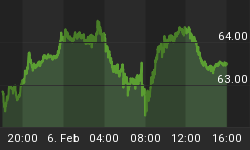2015 was a year Brazil would like to forget. Its economy crashed, its political class was decapitated by a corruption scandal, a huge iron mine dumped toxic waste onto a bunch of villages -- and the sludge is now seeping into the ocean. See In the Year's Final Indignity, Slime Coats Brazil's Pristine Beaches.
But the Brazilian development with the widest ramifications involves its sovereign wealth fund. This is an investment fund set up and run by the government and funded with the revenues from commodity sales, that was supposed to increase national wealth by buying things that would then rise in value. This too, has not gone as planned.
Brazil Dips Into Sovereign Wealth Fund as Finances Deteriorate
(Bloomberg) - Brazil dipped into its $620 million sovereign wealth fund on Tuesday as the government struggles to shore up public accounts that have been hit by the deepest economic recession in 25 years.
The government withdrew 855 million reals ($216 million) from the fund, or about one-third of its assets, as part of a strategy to boost public coffers, the Finance Ministry said in a statement Wednesday. The decision was made "in a context of economic contraction with a sharp drop in fiscal revenue and difficulties to cut mandatory expenses," the statement read.
The move was expected after the fund earlier this year started unloading shares of state-owned Banco do Brasil SA, which account for most of its holdings. The fund raised 134 million reals by selling those shares in the first half of July.
Why do we care about Brazil's sovereign wealth fund? Because these days such things are everywhere. Dozens of countries have set them up and released them into the financial markets, to the point that governments -- perhaps the worst money managers that have every existed -- now run in excess of $7 trillion, or more than venture capital and private equity funds combined. Here are the top ten, according to the Sovereign Wealth Fund Institute:

There are at least two major problems with governments becoming hedge funds:
They're infinitely corruptible. Note that the Brazilian fund owned mostly shares of a big state-run bank. That's probably not because Banco do Brazil was the most attractive of all the world's investments. More likely it's because local elites worked for or owned shares in the bank and wanted its price to go up.
One of the complaints about sovereign wealth funds is that they're opaque compared to, say, mutual funds that have to publish updated lists of their holdings. This is not an oversight. It's how the people profiting from the funds' activities like it. So to the extent that governments run lots of money, the system becomes correspondingly more corrupt -- which is another way of saying the invisible hand of market price signaling becomes increasingly crippled, converting everyone -- not just governments -- into dumb money.
Here, for instance, is how Brazil's sovereign fund did with its Banco do Brazil investment in 2015:

They're surprisingly volatile. National governments tend to see these funds as big pots of ready cash whenever budgets fail to balance. This is happening on a vast scale right now, as falling commodity prices crimp the previously robust finances of exporters like Saudi Arabia -- which took back $70 billion from third-party managers this year. Those third-party funds will now have to sell investments to raise the required cash, and $70 billion is a lot of selling.
Sovereign funds have about $4 trillion of oil and gas related investments, so this is just the beginning.
To sum up, the rise of sovereign wealth funds has both impaired financial markets' price signalling and increased their volatility, while making it easier for governments to avoid the hard choices necessary for long-term stability. And 2016 is when they'll really start causing trouble.















